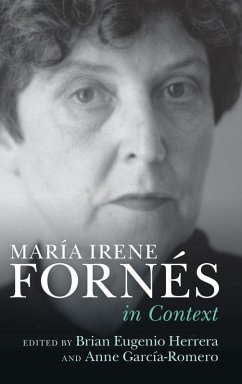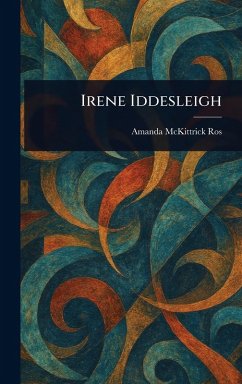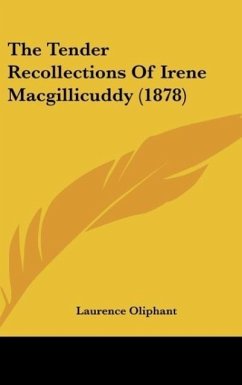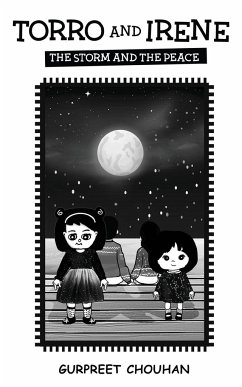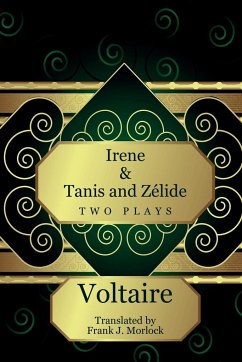
Irene & Tanis and Zelide
Two Plays
Versandkostenfrei!
Versandfertig in 1-2 Wochen
16,99 €
inkl. MwSt.

PAYBACK Punkte
8 °P sammeln!
Two classical French plays by the author of Candide. IRENE is set in the ancient Byzantine Empire. Alexis Comnenus, a noble general, revolts against the Emperor Nicephorus, who's been jealous of the officer's love for Nicephorus's wife, Irene. The Emperor dies defending his throne, and Alexis takes his place. Now he wants to marry his former lover. But although Irene has loved Alexis since childhood, she cannot marry the murderer of her husband, however odious he may have been. In the end she takes the only way out of her dilemma. TANIS AND ZÉLIDE tells the tale of Queen Zélide of Egypt, who...
Two classical French plays by the author of Candide. IRENE is set in the ancient Byzantine Empire. Alexis Comnenus, a noble general, revolts against the Emperor Nicephorus, who's been jealous of the officer's love for Nicephorus's wife, Irene. The Emperor dies defending his throne, and Alexis takes his place. Now he wants to marry his former lover. But although Irene has loved Alexis since childhood, she cannot marry the murderer of her husband, however odious he may have been. In the end she takes the only way out of her dilemma. TANIS AND ZÉLIDE tells the tale of Queen Zélide of Egypt, who's been driven from her throne by the Magi, and has taken refuge with the shepherds of the countryside. Tanis, one of the rustics, champions her cause, and wins battles on her behalf, while one of Zélide's loyal officers, Phanor, looks on with jealousy. Phanor betrays his lover to the evil priests, but Tanis prevails, and marches on Memphis, Egypt, where he reveals that he's the avatar of a god. The shepherd marries the Queen, and together they rule Egypt. Two great dramas by an icon of French literature!



